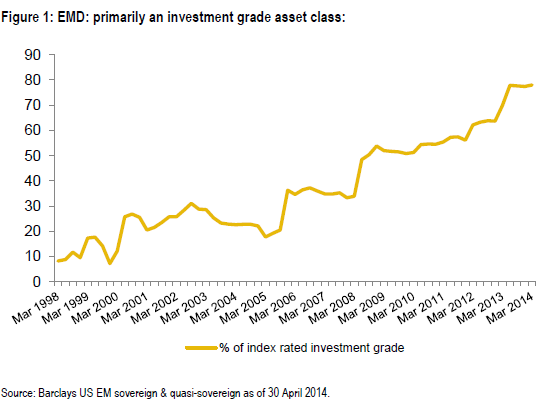Emerging Markets Value Portfolio (I)
Post on: 7 Май, 2015 No Comment

Even a long-term investment approach cannot guarantee a profit. Economic, political, and issuer-specific events will cause the value of securities, and the funds that own them, to rise or fall. Because the value of your investment in a fund will fluctuate, there is a risk that you will lose money.
Foreign Securities and Currencies Risk
Foreign securities prices may decline or fluctuate because of: (a) economic or political actions of foreign governments, and/or (b) less regulated or liquid securities markets. Investors holding these securities are also exposed to foreign currency risk (the possibility that foreign currency will fluctuate in value against the US dollar).
Small Company Risk
Securities of small companies are often less liquid than those of large companies. As a result, small company stocks may fluctuate relatively more in price. In general, small companies are also more vulnerable than larger companies to adverse business or economic developments and they may have more limited resources.
Emerging Markets Risk
Numerous emerging countries have recently experienced serious, and potentially continuing, economic and political problems. Stock markets in many emerging countries are relatively small, expensive and generally have higher risks. Foreigners are often limited in their ability to invest in, and withdraw assets from, these markets. Additional restrictions may be imposed under other conditions.
Derivatives Risk
Derivatives can be used for hedging (attempting to reduce risk by offsetting one investment position with another) or non-hedging purposes. While hedging can reduce or eliminate losses, it also can reduce or eliminate gains. The use of derivatives for non-hedging purposes may be considered more speculative than other types of investments. When the Portfolio uses derivatives, the Portfolio will be directly exposed to the risks of those derivatives. Derivative securities are subject to a number of risks, including commodity, correlation, interest rate, liquidity, market, credit and management risks, and the risk of improper valuation. The Portfolio also may use derivatives for leverage. The Portfolio’s use of derivatives, particularly commodity-linked derivatives, involves risks different from, or possibly greater than, the risks associated with investing directly in securities and other traditional investments. Changes in the value of a derivative may not correlate perfectly with the underlying asset, rate, or index, and the Portfolio could lose more than the principal amount invested. For example, potential losses from commodity-linked notes or swap agreements can be unlimited. Additional risks are associated with the use of credit default swaps, including counterparty and credit risk (the risk that the other party to a swap agreement will not fulfill its contractual obligations, whether because of bankruptcy or other default) and liquidity risk (the possible lack of a secondary market for the swap agreement). Also, suitable derivative transactions may not be available in all circumstances and there can be no assurance that the Portfolio will engage in these transactions to reduce exposure to other risks when that would be beneficial.
Securities Lending Risk
Securities lending involves the risk that the borrower may fail to return the securities in a timely manner or at all. As a result, an Underlying Fund may lose money and there may be a delay in recovering the loaned securities. An Underlying Fund could also lose money if it does not recover the securities and/or the value of the collateral falls, including the value of investments made with cash collateral. Securities lending also may have certain adverse tax consequences. To the extent that the Portfolio holds securities directly and lends those securities, it will be also subject to the foregoing risks with respect to its loaned securities.
Value Investment Risk
Value stocks may perform differently from the market as a whole and following a value-oriented investment strategy may cause the Portfolio to at times underperform equity funds that use other investment strategies.
Dimensional Fund Advisors is an investment advisor registered with the Securities and Exchange Commission. Consider the investment objectives, risks, and charges and expenses of the Dimensional funds carefully before investing. For this and other information about the Dimensional funds, please read the prospectus carefully before investing. Prospectuses are available by calling Dimensional Fund Advisors collect at (512) 306-7400 or at www.dimensional.com .
Mutual funds distributed by DFA Securities LLC.
These Net Asset Values (NAVs) have been prepared by the fund accounting agent. Dimensional Fund Advisors reserves the right to restate these NAV figures, if necessary, at any time.














